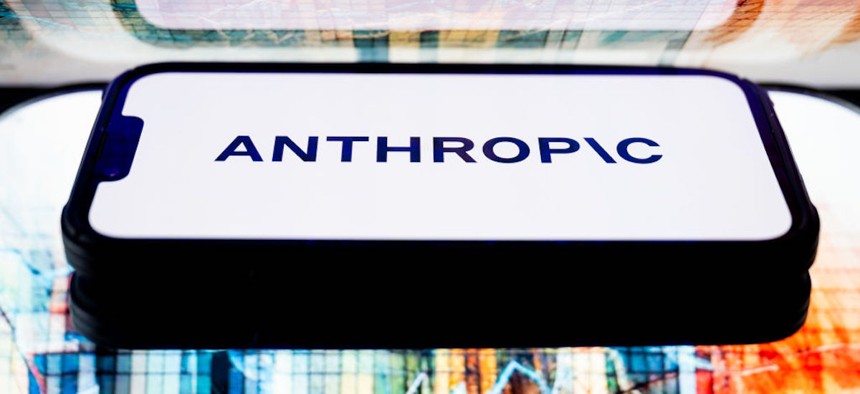Anthropic extends Claude to all US government branches for $1

Anthropic has struck a first-of-its-kind deal with the U.S. General Services Administration to offer Claude for Enterprise and Claude for Government to all three branches of the federal government for $1 per agency for one year, expanding AI access beyond the executive branch and signaling an aggressive push into public-sector adoption[7][5].
Why this matters
- Unprecedented scope: Unlike OpenAI’s recent $1 offer limited to the executive branch, Anthropic’s agreement covers the executive, legislative, and judicial branches, potentially placing enterprise-grade AI in the hands of hundreds of thousands of federal workers[5][7].
- Secure-by-design deployment: The bundle includes Claude for Government with support for FedRAMP High workloads, enabling use on sensitive unclassified tasks, a key barrier to federal AI adoption[5].
- Public-sector AI race: The deal follows GSA’s move to approve multiple AI vendors and comes amid escalating competition from OpenAI, Google, and xAI to win government workloads[5][1].
What’s new
- OneGov agreement structure: The GSA says the Anthropic deal is structured to allow access across agencies and extend to Congress and the judiciary pending approvals, aiming to “boldly, responsibly, and at scale” standardize access to advanced AI tools[7].
- Enterprise features at nominal cost: Agencies get Claude for Enterprise—with auditability, admin controls, and data protections—plus a government-ready deployment for regulated use cases, all for a symbolic $1 fee that removes procurement friction and cost hurdles[5][7].
How agencies could use it
- Productivity and drafting: Early government pilots with comparable tools reported time savings of roughly 95 minutes per worker per day on routine tasks, suggesting meaningful efficiency gains if scaled across federal staff[1].
- Secure knowledge work: FedRAMP High support positions Claude for tasks like policy analysis, summarization of briefings, code assistance, and RFI/RFP drafting within sensitive unclassified environments[5].
- Science and defense alignment: Anthropic is already a vendor under a DoD contract worth up to $200 million for AI development, indicating fit for mission-oriented and research workflows[5][1].
Competitive landscape
- Follow-on to vendor approvals: GSA recently added OpenAI, Google Gemini, and Anthropic to the federal AI vendor list, laying groundwork for broader procurement and standardized security postures[5].
- Countering OpenAI’s head start: Anthropic’s coverage of all three branches one-ups OpenAI’s executive-branch-only offer, intensifying the bid to become the default LLM across government knowledge work[1][5].
Expert and policy context
- GSA frames the pact as cementing U.S. leadership in AI adoption within government, aligning with the White House’s AI action agenda to modernize operations and improve service delivery through responsible AI[7].
- The inclusion of Claude for Government reflects growing emphasis on compliance, observability, and data-residency controls required by federal CIOs and CISOs to move beyond pilots into production workloads[5].
What’s next
- Rapid onboarding: Agency leadership can request access immediately; broader rollout will test training, guardrails, and usage policies at scale across heterogeneous federal missions[5][7].
- Procurement ripple effects: If usage drives measurable ROI, expect multi-year, higher-value follow-on contracts and stricter evaluation benchmarks for accuracy, safety, and total cost of ownership.
- Market impact: The symbolic $1 pricing could reset expectations for trialing enterprise AI in regulated sectors, pressuring rivals to match on terms, security posture, and interoperability[5][1].
How Communities View Anthropic’s $1 Government Deal
Anthropic’s OneGov agreement to provide Claude across all three U.S. government branches for $1 has sparked a debate over access, security, and competitive dynamics.
-
Pro-adoption efficiency camp (~40%): Commentators on X like @alexandr_wang and public-sector IT pros highlight the symbolism of $1 pricing as a catalyst for rapid AI onboarding, citing prior pilots showing major time savings per employee. They argue GSA’s approach lowers procurement friction and accelerates modernization across agencies. On Reddit, r/MachineLearning threads praise the FedRAMP High support as a must-have for moving beyond demos.
-
Security and compliance skeptics (~25%): CISOs and policy voices (e.g., @kimzetter-style accounts) question data governance, model auditing, and supply-chain risk at scale. Redditors in r/cybersecurity raise concerns about prompt-injection, sensitive unclassified information handling, and the need for agency-specific guardrails before mass deployment.
-
Competition and antitrust watchers (~20%): Tech policy analysts on X argue the deal could tilt the public-sector LLM default toward Anthropic, prompting calls for multi-model procurement and transparent benchmarking. r/technology users debate whether symbolic pricing is a form of market seeding that disadvantages smaller vendors.
-
Governance and bias debates (~15%): Political commentators reference recent federal guidance and executive actions on AI neutrality, asking how content moderation, bias controls, and auditing will be enforced. Civil-liberties advocates push for public reporting on usage, error rates, and red-team results.
Overall sentiment: Cautiously optimistic. Many welcome standardized access to secure AI, but demand rigorous oversight, metrics on ROI and accuracy, and a multi-vendor strategy to avoid lock-in. Notable voices include public-sector CIOs, AI infra founders, and policy researchers calling for NIST-aligned evaluations and transparent incident reporting.